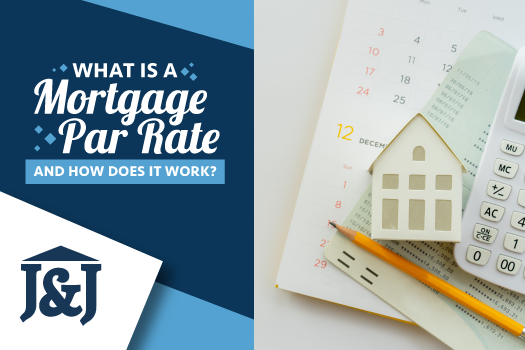Every homebuyer wants a low mortgage par rate because it can save them hundreds of…
Be Aware Of These Title Issues That Can Delay Your Closing
If you are looking to get pre-approved for a mortgage from one of the many mortgage lenders in Huntington Beach, it is worth noting that there can still be a hiccup in the home-buying process when you have made it as far as the home stretch. This article has been written to highlight several of the issues that can arise when dealing with the title to a property.
Defining “Cloud on Title”/”Title Defect”
The former term is often used by lawyers to describe any sort of title defects, such as encumbrances to transferring the title from seller to buyer, that arise during the title search. Their most common form would be liens, easements, court proceedings, and prior claims on the title in question.
You need to notice these problems immediately because most will hurt your property. Sellers should note that a cloud on title devalues property and buyers should note that an uncorrected title defect can eject them from the transaction.
Defining a Property’s Title
Owning a property’s title means you decide what happens to it, be it living on the premises or selling it off. Purchasing a new home involves a transfer of title from seller to buyer with a closure yielding the title and deed to the buyer. It should be noted that property rights can be restricted by things like zoning regulations or easements, hence a title search’s necessity.
Can Title Searches Be Waived?
Title searches are supposed to sniff out anything like easements or unresolved payments and are performed by a title company or lawyer. There are some variables that influence whether or not a search can be waived, including whether the home is being bought through a lender or with cash.
With a Mortgage
Mortgage lenders always request a title search; skipping this step runs the risk of discovering an unfit seller, destroying your shot at property ownership.
In Cash
If the seller will accept hard cash, they may waive the search. However, you should still pursue a search just to avoid the chance that your seller has no rights to the property, leaving you with nothing.
What Causes Clouds and Defects?
Every home has some sort of encumbrance, be it a utility easement to a primary mortgage; these do not lead to issues in a title search. Liens, however, are a common problem found in title searches and they are tied to the property instead to the debtor; buy a home with a lien and that debt is yours the moment you have its title. Should the title search find a problem, the title company must investigate the issue, delaying closure.
Tax Liens
These occur when a homeowner lapses on taxes, causing the government to intervene and use the home as collateral or even seize the property. Should a tax lien be discovered, an investigation is held to determine the debt’s status.
Delinquent Tax Bills
Most property tax liens are the result of paying a bill but without removing the lien “status.” In these circumstances, sellers can clear the issue with proof of payment. Even if the bill is unpaid, sellers can obviate the lean from the home’s sale proceeds.
Seller Refuses/Cannot Pay
In this circumstance, you may find a title contingency in your sales contract, allowing you to walk away with your money. Alternately, a willing buyer can add the tax bill to his tab, clearing the lien. That said, walking without a contingency means you lose your money.
Easements
Easements should be declared on the seller’s disclosure forms and mean that the seller owns the title but another party has property rights. While most properties have easements, some can be rather severe in what is or is not allowed on the property.
Mechanic’s Lien
These are filed by laborers who were never paid for work done and such liens deny sale until the lien is dealt with. In most cases, the underlying debt may have already been satisfied.
Unpaid Homeowner’s Association (HOA) Fees
An HOA may place a lien on properties if an owner lapses in paying fees. Should the seller fail to pay the fees but sell off the property before a lien is placed, the new owners inherit those fees.
Probate
There is a gap in time between signing a real estate contract and property closure, sometimes enough time for a seller to die.
Seller Has a Spouse/Joint Tenant
Survivorship rights extend to property rights, allowing the sale to continue unabated.
Seller Dies Testate
You must wait until the will is probated before you can close. However, the sale is considered a binding contract if the seller accepted your offer before expiration, meaning that your contractual rights overwrite any claim by the estate’s heirs.
Property Owned Through a Living Trust
If the seller fails to remove the trust when selling, the property becomes the trust’s beneficiaries-unless these new owners are interested in continuing the sale, you will have nothing.
Lawsuits
Legal proceedings usually cancel a sale. While a buyer could purchase in cash to continue, this is incredibly risky as the title usually cannot be recorded.
Other Claims
Claims can pop up from all sorts of other parties who believe they own the property. For example, should a divorcee’s name remain on the deed, a quitclaim deed may need filing to obviate the divorcee’s name and clear the cloud.
What If a Title Defect is Found?
Usually, most red flags from a title search are minor and only delay closure. However, never ignore one unless you can cover that debt on your own.
In Summary
If you notice any issues during a title search, you should speak with a real estate attorney as they know how to efficiently steer you out of the problem. Clouds on title come in a variety of permutations but they will dissipate once any title defects are dealt with. If anything more severe pops up, it is best to either hold out or cut your losses. Furthermore, no lender will allow such a home purchase because of that risk.



